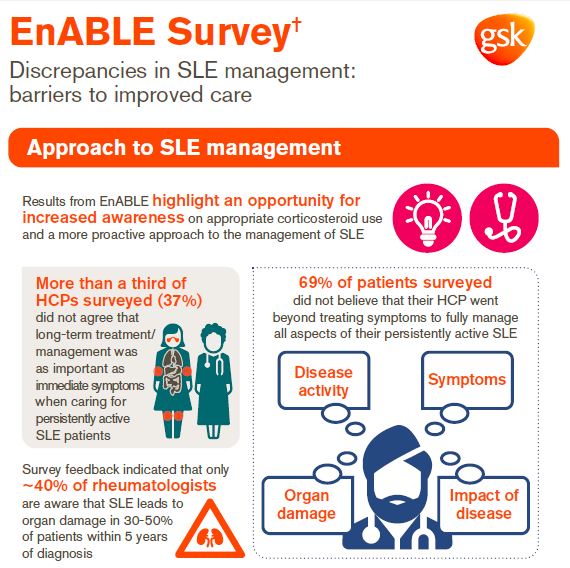Steroids can help alleviate immediate symptoms of lupus
With lupus, your body is its own worst enemy: it attacks itself without warning.
In the more severe cases, like a smouldering volcano, an immuno-inflammation eruption can cause crippling fatigue and over time, irreversible damage to organs in the body. Half of all lupus patients will have irreversible organ damage within five years of being diagnosed.
Steroid medications work quickly to lessen the immediate symptoms of the immune system’s response, by decreasing the swelling, warmth, tenderness and pain that are associated with inflammation. However, they can have serious long-term side effects and are themselves associated with organ damage, the risk of which increases with higher doses and longer-term therapy.
Short-term solutions in lupus management
Despite these known risks, when asked about their prescribing habits and attitudes towards steroid usage, most doctors in the survey accepted doses far exceeding what is normally recommended in clinical practice.


